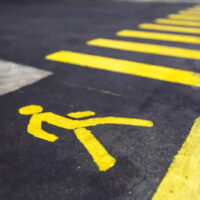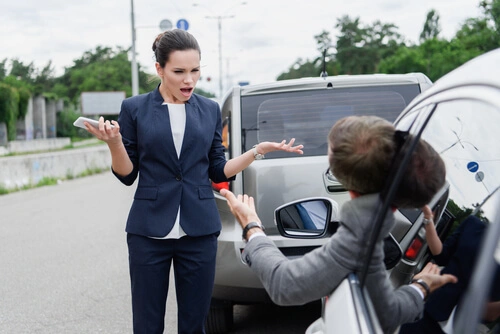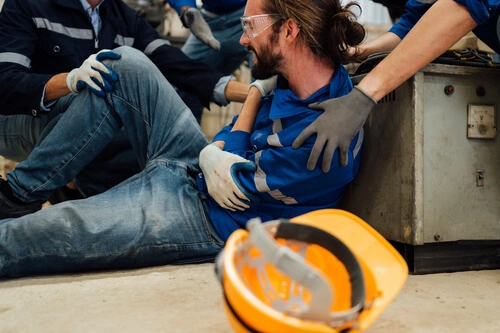Injured Pedestrians in Florida Can Recover Damages Even if They Share Fault

With drivers and pedestrians increasingly distracted by mobile devices, pedestrian accidents in the United States are on the rise, while other types of traffic accidents have declined. According to the Governors Highway Safety Association, approximately 6,283 pedestrians were killed by motor vehicles nationwide in 2018, the highest number in three decades.
On average, a pedestrian is killed in a traffic accident every one-and-a-half hours, according to the National Highway Traffic Safety Administration.
Pedestrians’ own actions sometimes contribute to their being struck by a vehicle and are part of the reason why accidents take place on streets, sidewalks, bike paths, and other public rights of way. Perhaps you entered the roadway without the walk signal or started to cross the street between two parked cars. Perhaps you jogged into a bike lane and cut off a bicyclist because you had headphones on and didn’t hear his calls to move, or darted into the street without looking after leaving a bar or club late at night.
You may wonder if you can still pursue a legal claim for your injuries if you were partially at fault in a pedestrian accident. The answer is yes, depending on your degree of fault. You can still make a claim against the party who hit you even if your own poor decisions contributed to the accident, but your damages paid will be reduced.
This is because the legal system in Florida allows people to be compensated for their injuries to the extent that others were responsible for them. For instance, you may have been distracted by your phone and stepped into the street without watching for traffic, but the driver who hit you may have been exceeding the speed limit or violating some other traffic law and couldn’t stop in time. In such a case, you would both share fault for the accident.
The Doctrine of Comparative Fault Protects Pedestrian Accident Victims in Florida
Negligence on the part of the plaintiff is one of the most common defenses that defendants in accident cases use. Florida applies the doctrine of comparative fault to personal injury and other tort cases, which furthers the principle that a plaintiff’s financial recovery should be reduced by the degree to which the plaintiff (injured person) contributed to their own damages.
Under the comparative fault system, fault for an accident is apportioned between the plaintiff and defendant, and the plaintiff’s percentage of fault is figured into whatever financial recovery they are entitled to. For instance, If you are injured in an accident with a motorist and have $100,000 in recoverable damages but are determined to be 25 percent responsible for causing the accident, you should be able to recover $75,000 from the motorist. However, calculating and apportioning the precise degree of responsibility and amount of damages is a complex, fact-intensive process which is usually left to a judge or jury.
(Note: This is different from the common-law doctrine of contributory negligence, which holds that if the plaintiff’s own negligence contributed to the incident that injured him in any way at all, he cannot pursue a claim for damages.)
We Can Advise You on How To Proceed with Your Pedestrian Accident Case
The dedicated Tampa personal injury attorneys at the Pawlowski//Mastrilli Law Group vigorously represent injured pedestrians in the greater Tampa, Clearwater, Lakeland and St. Petersburg areas. We know how to get you the compensation you need even if you were partially to blame for your accident. To learn how we can help you, contact our firm to get your claim started today.
Resources:
nhtsa.gov/road-safety/pedestrian-safety
ghsa.org/resources/Pedestrians19
https://megajustice.com/recovering-lost-wages-when-you-are-hurt-in-a-florida-car-crash/










